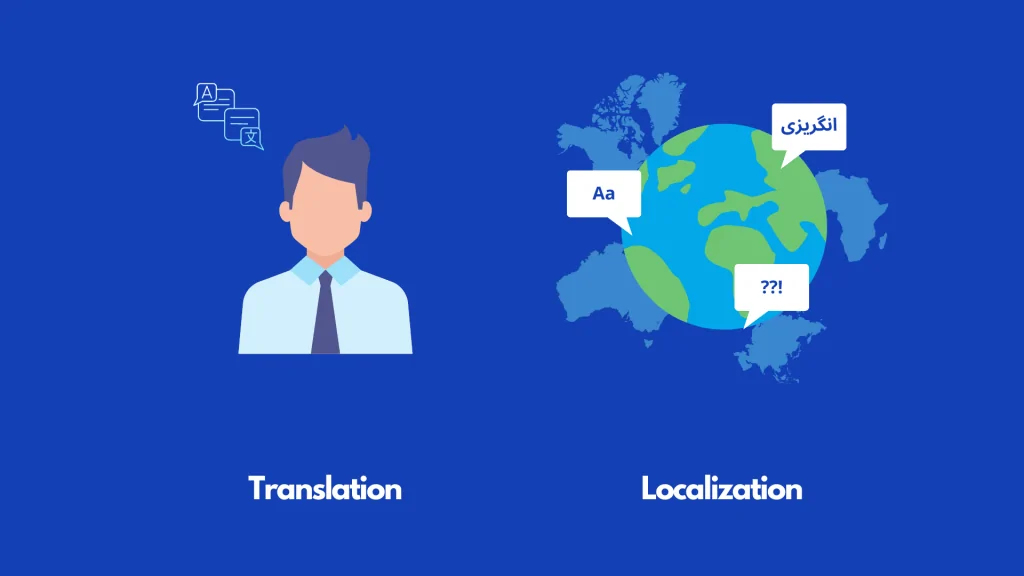Stay ahead of the competition by acquiring proficiency in these key business languages of 2024.
The ability to communicate in various is becoming increasingly important in an increasingly integrated global corporate world. Sharing with others in their native is the first step toward forming a long-term connection or relationship, whether in academia or a more professional situation.
Being bilingual (or better yet, multilingual) has numerous advantages that can help an individual (or even an organization) achieve success. Comprehending the meaning behind the terms to emotionally correlate with clients and coworkers may strengthen your organization, making it more competitive globally, especially when highly valued diversity in the workplace.
However, before you begin studying a , you may wonder, “What should I learn?” or “What is the most useful or practical for my profession?”
What are the most crucial to know out of the over 7000 living on the planet to put yourself and your company miles ahead of the competition? The following is a list of the most critical business to learn in 2021:
In 2024, the following are the most important languages to learn: languages cultural
★ Mandarin Chinese
Mandarin Chinese, also known simply as Mandarin, is the most widely spoken in the world. With over 1 billion native speakers, it holds tremendous global significance. In this article, we will explore the characteristics, importance, and practical benefits of Mandarin Chinese, highlighting its influence on various aspects of society.
- Linguistic Characteristics: Mandarin Chinese is a tonal, meaning that the pitch or tone of a word can change its meaning. It utilizes four main tones and a neutral tone, which presents a unique challenge for non-native speakers. The is also characterized by a vast number of characters in its writing system, making it a logographic where each character represents a word or concept.
- Importance: Mandarin Chinese has deep roots, stemming from ancient Chinese civilization and its rich history. It serves as a key element in understanding Chinese culture, literature, philosophy, and traditions. Mastery of the allows individuals to appreciate classical Chinese texts, such as Confucian teachings and ancient poetry, as well as modern Chinese literature and media.
- Economic Opportunities: China’s rapid economic growth has made Mandarin Chinese an increasingly valuable for business and career opportunities. As the world’s second-largest economy, China has become a major player in international trade and investment. Proficiency in Mandarin Chinese opens doors to job prospects, facilitates communication with Chinese counterparts, and enhances understanding of the Chinese market and business culture.
- Global Communication: Mandarin Chinese serves as a lingua franca for the Chinese-speaking diaspora around the world. Chinese communities in various countries maintain their and ties, enabling Mandarin to be used as a common means of communication among these communities. This facilitates connections, exchange, and trade opportunities among Chinese communities globally.
- Academic Pursuits: The academic realm benefits greatly from Mandarin Chinese proficiency. Numerous prestigious universities offer programs and scholarships for individuals studying Chinese, culture, history, or other related fields. Learning Mandarin enhances one’s ability to engage in research, collaborate with Chinese scholars, and gain access to a vast range of academic resources and publications in Chinese.
- Exchange and Tourism: Mandarin Chinese proficiency facilitates exchange and tourism in Chinese-speaking regions. Travelers equipped with Mandarin skills can communicate more effectively with locals, navigate their way around, and gain a deeper understanding of the local culture. It allows individuals to fully immerse themselves in the vibrant cultures of China, Taiwan, and other Mandarin-speaking regions.
- Diplomacy and International Relations: Mandarin Chinese plays a crucial role in international diplomacy and relations with Chinese-speaking countries. Government officials, diplomats, and foreign service professionals who can speak Mandarin Chinese have an advantage in fostering diplomatic ties, negotiating agreements, and promoting understanding between nations.
- Technological Advancements: Mandarin Chinese intersects with technology and innovation. As China becomes a global leader in technological advancements, proficiency in Mandarin facilitates engagement with Chinese tech companies, research institutions, and emerging technologies. Understanding Mandarin Chinese terms and concepts related to technology helps individuals stay at the forefront of cutting-edge developments.
With over one billion Mandarin Chinese speakers worldwide, it is unsurprising that Mandarin Chinese ranks at the top of the most important languages to study in 2021.
Is English still one of the most important languages to learn because most speakers live in China? Yes, with China’s rise as a global power, it is becoming increasingly crucial for organizations to have Chinese-speaking employees.

★ Spanish
Spanish, with its widespread usage and significance, holds a prominent place among the world’s languages. Spoken by over 460 million people worldwide, it is an official language in 21 countries. In this article, we will explore the characteristics, importance, and practical benefits of the Spanish language, highlighting its global reach and impact.
- Linguistic Characteristics: Spanish is a Romance language, derived from Latin. It is known for its phonetic pronunciation, which means that words are generally pronounced as they are spelled. This characteristic makes Spanish relatively easier to learn for many learners. The language employs a straightforward grammatical structure, with verb conjugations and noun agreements.
- Significance: Spanish has a rich heritage deeply rooted in history, art, literature, and music. It serves as a gateway to appreciate the diverse cultures of Spanish-speaking countries across the globe. From the vibrant rhythms of flamenco in Spain to the poetic literature of Latin American authors like Gabriel García Márquez and Pablo Neruda, Spanish offers a unique insight into the artistic and intellectual contributions of Spanish-speaking societies.
- Global Communication: The widespread usage of Spanish makes it a valuable tool for international communication. Being the second most spoken language globally, it facilitates interactions across diverse regions. Spanish proficiency allows individuals to engage with Spanish-speaking communities, conduct business, and foster exchange in various parts of the world, including Europe, the Americas, and parts of Africa and Asia.
- Economic Opportunities: Spanish-speaking countries contribute significantly to the global economy. The ability to communicate in Spanish opens doors to business opportunities, trade relations, and investment prospects. Many multinational companies recognize the importance of Spanish-speaking markets and seek professionals with Spanish language skills to expand their operations and cater to Spanish-speaking customers.

- Travel and Tourism: Spanish proficiency enhances travel experiences in numerous countries. Whether exploring the vibrant streets of Barcelona, relaxing on the beaches of Mexico, or immersing oneself in the ancient ruins of Machu Picchu, speaking Spanish enables deeper connections with locals, facilitates understanding, and ensures a more authentic travel experience.
- Academic and Career Advantages: Proficiency in Spanish offers numerous academic and career advantages. Many prestigious universities provide programs in Spanish language, literature, and culture, allowing individuals to engage in research, scholarship, and studies. Bilingual professionals who can communicate in Spanish possess a competitive edge in fields such as international relations, education, translation, healthcare, and tourism.
- Literature and Artistic Expression: Spanish boasts a rich literary tradition that spans centuries. The works of renowned authors like Miguel de Cervantes, Federico García Lorca, and Isabel Allende have shaped world literature. By learning Spanish, individuals can access these literary treasures in their original form, appreciating the nuances and depth of Spanish-language literature.
- Community Engagement and Integration: In countries where Spanish is widely spoken, such as Mexico, Spain, and Argentina, proficiency in Spanish enhances community engagement and integration. It allows individuals to form deeper connections with local communities, participate in events, and gain a deeper understanding of societal norms and values.
Spanish has a substantial native speaker population as well as a significant total speaking population. In addition, the majority of Spanish-speaking countries can be found in South and Central America, both of which have become increasingly popular tourist destinations in recent years. As a result, Spanish is spoken by a large number of people around the world. Furthermore, given the enormous number of Spanish speakers in the United States, Spanish is the language to study if you live, work, or travel there!

★ German
Germany is the most frequently spoken language in Europe, owing to the country’s economic dominance. In the end, if you do business in Europe or plan to do business in Europe, German is an essential language to learn. Moreover, it’s a pleasant language to learn since words have endings that give them distinct meanings. It is, nonetheless, a surprisingly simple language to learn.
★ French
For years, French, commonly known as the “love language,” served as the international and strategic vernacular. English has only lately exceeded French as the literature of diplomacy, owing to the advent of the United States as a worldwide power. France is still a significant economic player and a popular tourist destination; therefore, learning French is a must!
★ Arabic
Arabic began as a nomadic language used by nomadic people. It is now the official language of the Arab League, which consists of 22 nations, including Egypt, Jordan, Morocco, and the UAE. These well-known tourism spots make learning Arabic worthwhile. It is also the language of the entire Muslim civilization, including all of its books. With over 1.8 billion Muslims worldwide, it’s no surprise that Arabic cut.
★ Russian
Several Eastern European and Europeanasian countries use Russian as their primary language. In addition to having the second most significant percentage of internet material (behind English), Russian has the highest rate of internet content in Europe. As a result, one of the most crucial languages to learn for European business is Russian.
★ Portuguese
Portuguese is a widely spoken language throughout Europe, South America, Asia, and Africa, and it is the official language of several nations. If that wasn’t enough to persuade you that this is one of the most powerful languages to study, consider the following: Brazil is fast becoming one of the world’s most powerful economies. As the country’s tourism grows and more international enterprises set up shop, the demand for Portuguese speakers grows.
★ Japanese
Even though the Japanese language is not commonly spoken outside of Japan, it is helpful to know. Knowing Japanese can help you in various ways, whether you want to vacation in Japan, enjoy the culture and food, or learn about technology. It’s also an excellent means to study other Asian languages. For example, with comparative grammar to Korean and some Chinese characters, learning Japanese sets you on the path to mastering all three languages.
★ Hindi
With one of the most outstanding speakers globally, Hindi is undoubtedly one of the most important languages to learn. But, like with other languages, it’s not only the vast number of speakers that should inspire you to study the language; it’s the language’s global influence. India is a significant player in today’s global economy, and Hindi is the most widely spoken language in the country.
★ Italian
Although Italian has the smallest number of speakers on this list, it is an important language to learn. The arts, culture, and history of Italy are all richly woven together. Italy is home to many world heritage sites, as well as many historical documents, are written in the Italian language. In addition, it is a famous tourist site, and knowing Italian will assist you in your travels. Furthermore, understanding one of these comparable romance vern/aculars — Spanish, French, Italian, or Portuguese — will make studying the others in the collection much more convenient.
Why Learn A New Language
● You’ll Make More Money
Learning a second has numerous advantages, one of which is the to increase your earning . In this article, we will explore the financial benefits of learning a second and how it can open up new opportunities for career growth and higher income.
- Global Business Opportunities: In today’s globalized world, knowing a second can significantly enhance your career prospects. Many multinational companies operate in diverse regions, and being proficient in a second, such as Spanish, Mandarin Chinese, or French, allows you to communicate effectively with international clients, negotiate deals, and navigate cultural nuances. This expanded reach in business can lead to better job prospects and higher-paying positions.
- Bilingual and Multilingual Positions: Certain industries value bilingual or multilingual professionals. For example, in the tourism and hospitality sector, where interactions with international guests are common, fluency in multiple is highly sought after. Similarly, industries such as translation and interpretation, international sales and marketing, and diplomacy require individuals who can bridge barriers and facilitate effective communication. These specialized positions often come with higher salaries and additional benefits.

- Competitive Advantage: Being bilingual or multilingual sets you apart from other job applicants, giving you a competitive edge in the job market. Employers value candidates who can communicate with diverse customer bases and navigate multicultural environments. Your language skills demonstrate adaptability, awareness, and the ability to connect with people from different backgrounds. This unique skill set can lead to increased job opportunities and higher salaries.
- Language-Specific Roles: Learning a second language opens up opportunities for language-specific roles, where fluency in a particular language is essential. For instance, language teaching positions, translation and interpretation services, and content creation for foreign markets all require proficiency in a specific language. These roles often offer competitive compensation packages and may provide opportunities for freelancing or working remotely.
- Expanding into Emerging Markets: Languages associated with emerging markets can offer significant financial advantages. Countries like China, India, Brazil, and Russia have rapidly growing economies, and knowing the respective languages, such as Mandarin, Hindi, Portuguese, or Russian, can give you an edge when seeking opportunities in these markets. The ability to navigate business environments, negotiate contracts, and build relationships in these regions can lead to lucrative career prospects and business ventures.
- Higher Salaries for Language Professionals: Professionals who work directly with languages, such as translators, interpreters, and language teachers, often earn higher salaries compared to other occupations. Their specialized skills and expertise in facilitating communication between languages are in high demand. Additionally, language professionals may have the flexibility to work independently or as freelancers, allowing them to set their rates and earn more based on their experience and reputation.
- Networking and Collaboration: Knowing a second language enables you to expand your professional network and collaborate with professionals from different countries. Building connections with international colleagues, clients, and industry leaders opens doors to new business opportunities, collaborations, and partnerships. These connections can lead to lucrative projects, joint ventures, and expanded career prospects.

Knowing a second can earn you a lot of money. Adding a second to your skillset can boost your earnings by 2% on average. According to The Economist, learning Spanish will get you a 1.5 percent bonus, knowing French a 2.3 percent bonus, and knowing German a 3.8 percent bonus, according to The Economist!
● You’ll Be Able to Work in a Variety of Positions.
Globalization is accelerating, and our planet is shrinking. Those in high-demand occupations may need applicants to be fluent in at least two languages, primarily if the company works with international teams or partners. It will help you stand out on your applications if you are fluent in numerous languages, especially in high demand.
What is the most popular language?
Portuguese! It is attributable to Brazil’s fast-expanding economy. Brazil’s native language is Portuguese, which was brought to the country by Portuguese invaders. However, the tourism industry in Brazil is booming, and many firms are establishing offices there, making Portuguese a new in-demand language.
That closes our list of the most influential languages to learn in 2024. So which one are you going to pick?



